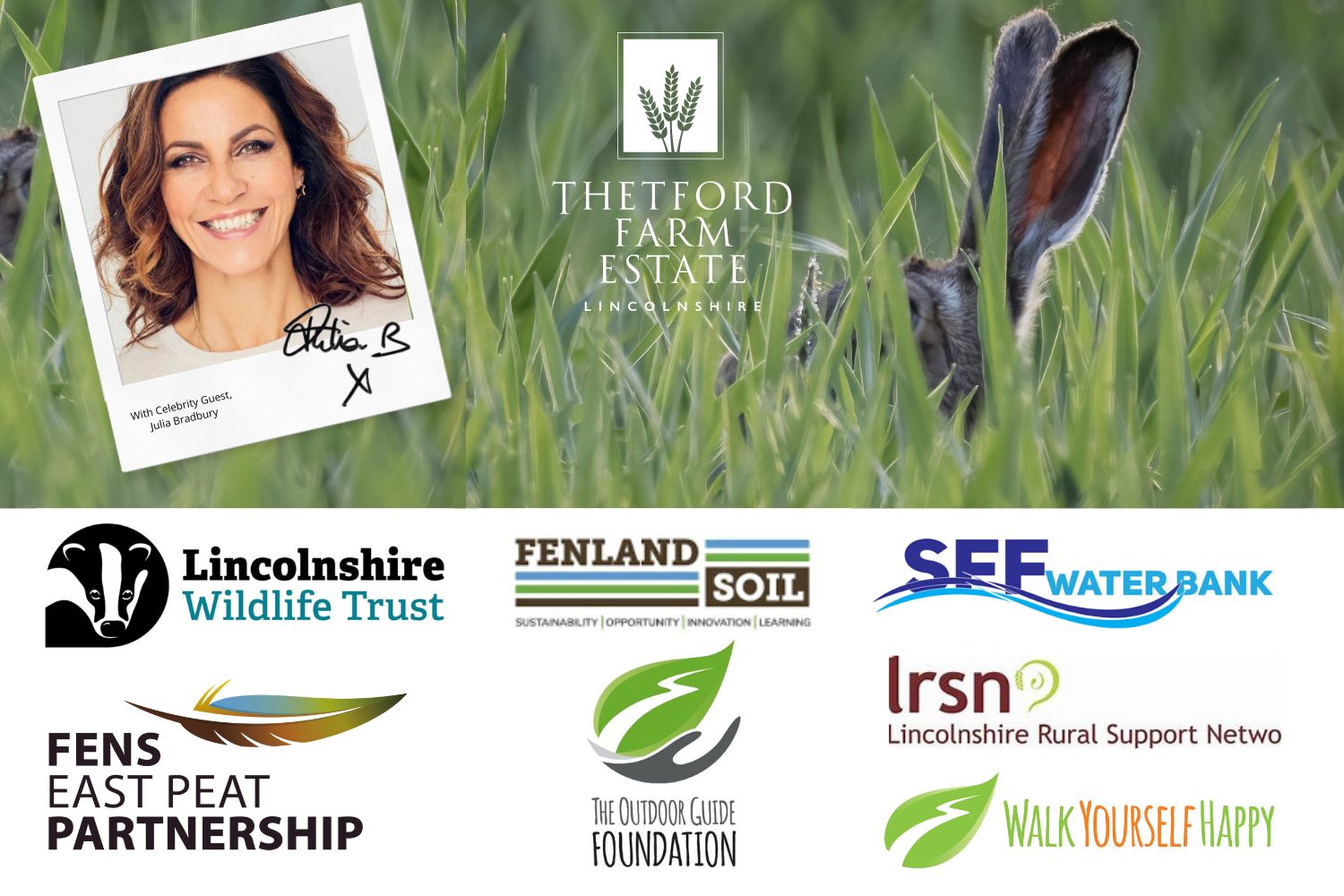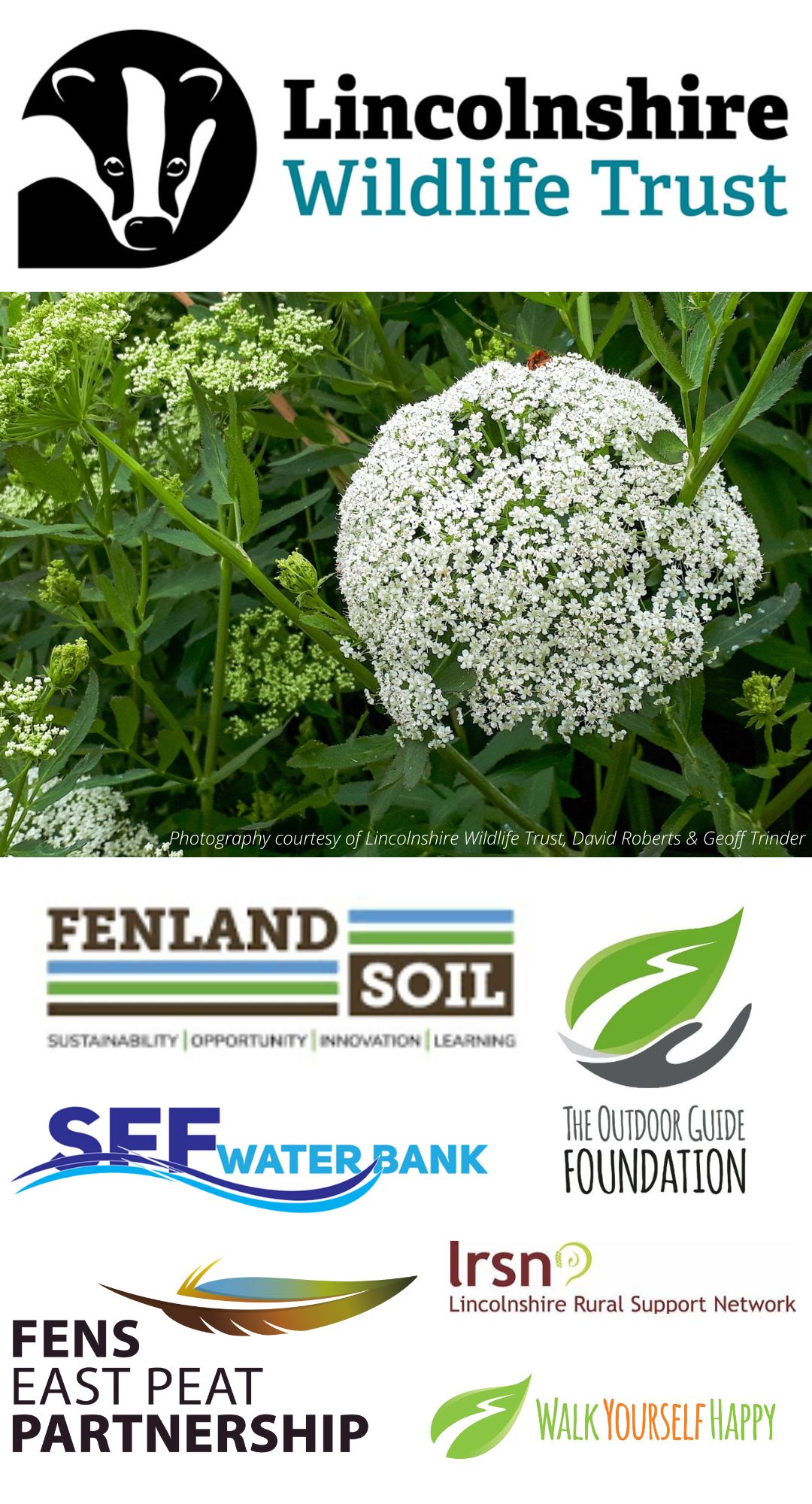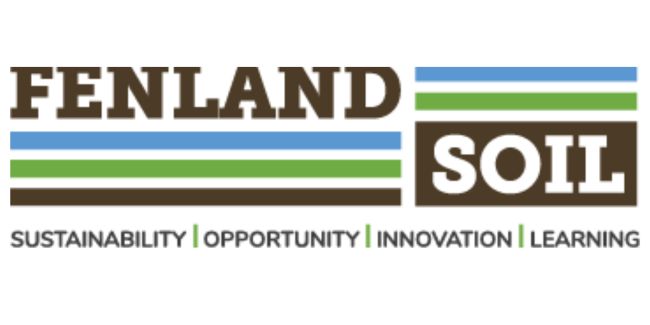Thetford Farm Barn & The Bourne North Fen Nature & Peatland Restoration
We are excited to launch our brand new wedding and conferencing barn in collaboration with Lincs Wildlife and the Bourne North Fen project.

Did you know, 99.99% of Lincolnshire’s original 100,000 hectares of wild wet fenland was lost!
This loss is responsible for the decline and extinction of much flora and fauna dependent upon these diverse wetland habitats.
Over 25% of rare and endangered species are within the Fens. Lincolnshire Wildlife Trust are working with many partners to address this, and the most recent project is restoring Bourne North Fen with the aim to restore 50 ha of farmland to Lincolnshire’s lost peat-fenland, creating a nature recovery network and a home for a wide variety of wildlife.
This ambitious plan would boost Lincolnshire’s endangered fenland habitats by 30%; supporting iconic species return to the area, such as bittern, crane, swallowtail butterfly and greater water parsnip.
Bourne North Fen Nature & Peatland Restoration
The Bourne North Fen Nature & Peatland Restoration project is lead by Tammy Smalley, Head of Conservation at the Lincolnshire Wildlife Trust. Tammy has been working towards this point for most of her working life and is extremely passionate about this project.
The new wetland would be connected via two rivers to form part of a nature recovery network that will tackle long-standing local water management issues in the driest region in the UK.
The new site sits inbetween our nature reserves of Willow Tree Fen and Baston Fen, offering the opportunity to restore and reconnect Lincolnshire’s lost fenland
It will provide a place to live for declining birds such as snipe, redshank and reed bunting, and birds lost from the Lincolnshire’s fens for over 100 years like bittern, corncrake and possibly even crane.
It will also provide a secure site for endangered plants such as greater water parsnip; rare fish such as spined loach; dozens of rare invertebrates including hairy dragonfly and fenland diving beetle; and mammals including water vole and otter.
Today less than 1% of the original fenland habitats remain in fragments across the Fens.
Project has been funded by Purchase Biffa award, Anglian Water and members of Lincolnshire wildlife trust, capital restoration works, nature for climate Petland grant scheme.

The Project’s Goal
-
The aim is to restore the land to wet-fenland. Benefits of doing so include:
- Creation of a nature recovery network
- Reduced flood risk
- Improved water quality
- Enhanced biodiversity
- Increased water capacity for agriculture
- Resilience to climate change
- Improved local eco-tourism economy
The Highlights
Thetford Farm Estate are immensely proud of the launch event that took place on September 19th, and privileged to have played a part in the Bourne North Fen Nature & Peatland Restoration.
During the event, guests heard from Lincolnshire Wildlife Trust‘s, Head of Conservation, Tammy Marie Smalley, Project Manager Mark Tattelin, and many more.
In the words of Tammy, ‘This project is about people and about working in partnership’
Stay in touch.
SIGN UP TO RECEIVE OUR LATEST NEWS AND UPDATES.





